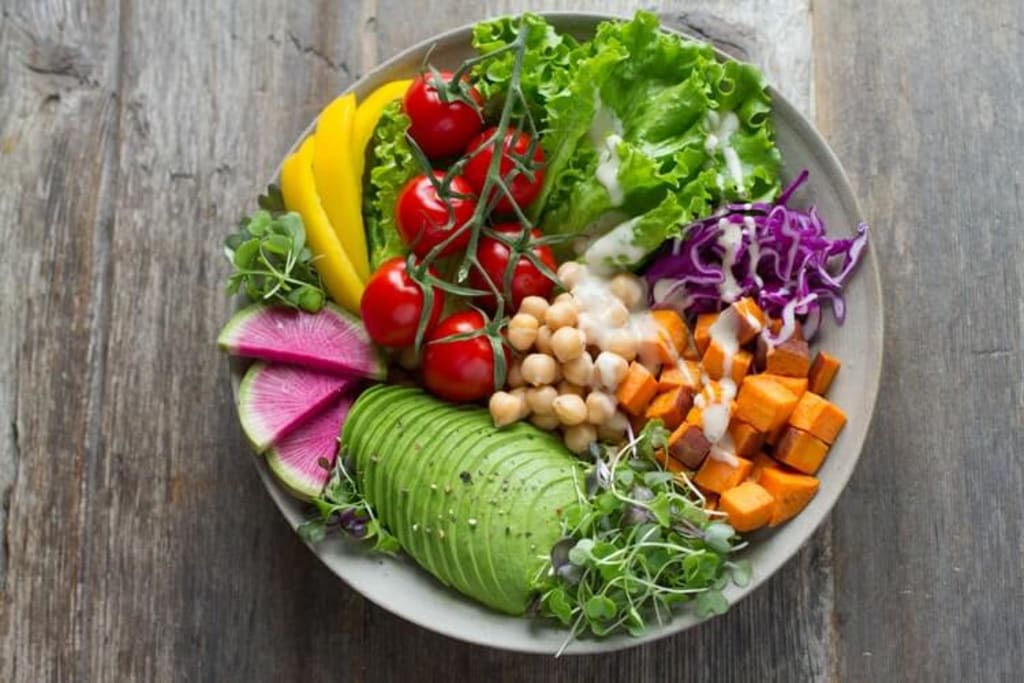Top 20 Benefits of Vegan foods
Benefits of vegan foods

Veganism is a lifestyle and dietary choice that seeks to exclude the use of animal products, as much as is possible and practicable, for ethical, health, or environmental reasons.
Vegans abstain from consuming meat, dairy products, eggs, honey, and any other products derived from animals. Additionally, they also avoid using products made from animal-derived materials, such as leather, silk, and wool.
A vegan diet typically includes a variety of plant-based foods such as fruits, vegetables, whole grains, legumes, nuts, and seeds, as well as plant-based alternatives to animal products, such as soy milk, tofu, and tempeh.
People adopt veganism for a variety of reasons, including animal rights, environmental sustainability, and health benefits. However, it is important to ensure that a well-planned vegan diet provides all essential nutrients and to consult with a healthcare professional before making any significant changes to your diet.
The concept of veganism can be traced back to ancient Indian and Eastern philosophy, where the idea of non-violence towards all living beings was a central tenet. In the modern era, veganism as a lifestyle and dietary choice gained momentum in the 1940s with the formation of the Vegan Society in the United Kingdom.
The society was founded by Donald Watson, who coined the term "vegan" to describe a person who abstains from the use of animal products, not just in their diet but in their overall lifestyle. The goal of the society was to promote a cruelty-free lifestyle and to provide support and resources to individuals interested in adopting a vegan diet.
Since then, veganism has grown in popularity, and today, there are many vegan-friendly products and options available, making it easier for people to adopt and maintain a vegan lifestyle. Additionally, numerous studies have highlighted the health benefits of a well-planned vegan diet, further increasing its popularity and mainstream acceptance.
Here are some of the potential health benefits of consuming a well-planned vegan diet:
Lower risk of heart disease: A vegan diet can lower the risk of heart disease by reducing the intake of saturated fat and increasing the intake of fiber and antioxidants.
Improved blood sugar control: A vegan diet can help regulate blood sugar levels and reduce the risk of type 2 diabetes.
Better kidney function: A vegan diet has been shown to improve kidney function and reduce the risk of chronic kidney disease.
Lower risk of certain cancers: A vegan diet has been linked to a lower risk of certain types of cancer, such as breast, prostate, and colon cancer.
Weight loss: A vegan diet can lead to weight loss, as it is typically low in calorie-dense animal products and high in fiber-rich plant foods.
Improved gut health: A vegan diet can improve gut health by promoting the growth of beneficial bacteria and reducing inflammation.
Better bone health: Despite the common belief that animal products are necessary for strong bones, a well-planned vegan diet can provide all the nutrients needed for optimal bone health.
Lower risk of neurological disorders: A vegan diet has been linked to a lower risk of neurological disorders such as Parkinson's and Alzheimer's disease.
Increased energy levels: A vegan diet can lead to increased energy levels, as it is typically rich in nutrients that support overall health and well-being.
Better skin health: A vegan diet can improve skin health by providing essential nutrients, such as vitamin C and antioxidants, that are important for skin health.
Reduced inflammation: A vegan diet can reduce systemic inflammation, which has been linked to a range of chronic health conditions.
Lower blood pressure: A vegan diet has been shown to lower blood pressure and reduce the risk of hypertension.
Improved athletic performance: A vegan diet can provide all the nutrients necessary for optimal athletic performance, including plant-based protein and iron.
Better sleep: A vegan diet can lead to improved sleep by providing essential nutrients, such as magnesium, that support sleep health.
Increased longevity: A vegan diet has been linked to increased longevity, as it is typically low in calorie-dense animal products and high in fiber-rich plant foods.
Better cardiovascular health: A vegan diet can improve cardiovascular health by reducing the risk of heart disease and lowering cholesterol levels.
Lower risk of obesity: A vegan diet can help reduce the risk of obesity by promoting a lower calorie intake and a healthier body weight.
Improved vision: A vegan diet can provide essential nutrients, such as vitamin A, that are important for vision health.
Better mental health: A vegan diet can improve mental health by reducing inflammation and providing essential nutrients, such as omega-3 fatty acids, that are important for brain health.
Increased lifespan: A well-planned vegan diet can increase lifespan by reducing the risk of chronic diseases and promoting overall health and well-being.
It's important to note that while these health benefits are commonly associated with a vegan diet, individual nutrient needs and dietary requirements may vary and it's important to consult with a healthcare professional to determine the right balance of nutrients for your specific needs.
Here some vegan recipe cookbook





Comments
Shalini Balan is not accepting comments at the moment
Want to show your support? Send them a one-off tip.